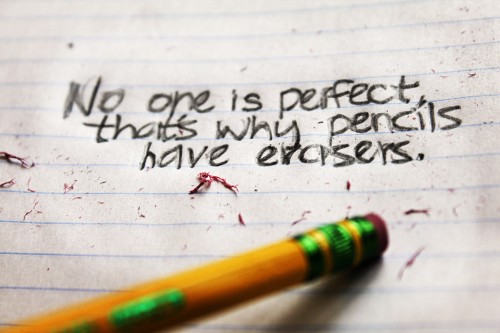
Find the perfection in every moment instead of trying to make every moment perfect.
― Donnalynn Civello
Do you consider yourself a perfectionist? Do you see that as positive or negative?
List your positive reasons:
1.______________________________________________________________
2._____________________________________________________________
3._____________________________________________________________
List your negative reasons:
1.______________________________________________________________
2.______________________________________________________________
3.______________________________________________________________
How would you define perfectionism?
Here’s some questions to help you figure that out:
1. When I make a mistake I:
__Beat myself up
__Feel guilty and try to rationalize
__Apologize to myself and others profusely
__Acknowledge it to myself and/or others and let it go
__Think about what I’ve learned
__I never make mistakes
2. I set very high standards for myself that I expect to meet
(if you do this in some areas and not others, indicate next to your answer)
__ Never
__ Rarely
__ Sometimes
__ Often
__ Always
3. I worry about what others think of me
(list if family, friend, co-worker, boss or stranger for each)
___Always
___Often
___Sometimes
___Rarely
___Never
4. When I am criticized, I:
___Immediately try to defend or explain myself
___Feel hurt, misunderstood, or angry
___Apologize profusely
___Assume the criticism is valid
___Consider the source and evaluate the truth or lack of
___Use that evaluation to make a decision if my behavior needs improving
5. I judge others for behaviors or beliefs that aren’t up to my standards:
__Always
__Often
__Sometimes
__Rarely
__Never
6. I can ask for what I want, within reason:
___Always
___Often
___Sometimes
___Rarely
___Never
(Contact me to find out how you rate as a perfectionist based on your answers to the above statements–include your answers)
Perfectionism, or lack of, is strongly influenced by our early experiences in life. If you lived in a family where members were critical, verbally or non-verbally; where there was physical, mental or emotional abuse, where there was lack of feedback on your ideas or actions, or where you were constantly being corrected or told to improve, even with good intentions, you are more likely disposed to be a perfectionist. The messages you received, verbally or non-verbally conveyed the idea that you weren’t good enough and/or were unlovable the way you were.
Give some thought to what your messages were, and how you think perfectionism will make a difference. Complete this sentence: If I were perfect, I would be
Perfectionism for many implies it will solve most, if not all of your negative feelings about yourself and your life. The problem is, attempting to achieve that goal can lead to added stress in the form of frustration, compulsive behaviors, and reinforcement of your negative feelings.
As humans, we are imperfect beings, so your dreams of perfection are unattainable. My definition of perfection: to be perfect means to know you’re not. Your goals more appropriately are to accept your imperfections as human, and to feel relief that you are a good and valuable person because of your mistakes, and that every mistake you make is an opportunity to learn.
Think about the people you know, and how you react when someone makes a mistake or uses what you consider poor judgment. List your reaction here: _____________________________________________________________
Think about how you feel about someone you know who is a constant pleaser, always apologizing, making excuses for their thoughts or actions. List your reaction here:___________________________________________________
Think about your reaction to someone who is a perfectionist—that nothing they do is ever good enough, which is demonstrated by compulsive behavior or self-flagellation.______________________________________________________
Do you tend to feel any measure of relief when you see “imperfections” in others? Do you tend to feel intimidated by someone who does seem to be perfect in one or more areas?
What are the assumptions you make about yourself when you see yourself in any of the above behaviors? How are your assumptions similar or different than what you described above?
Being a perfectionist is based on the assumptions you make about how others will react and feel about you, and how you will feel when that happens. I’ve often found that people’s assumptions about how they feel towards others who are or are not perfectionists are quite different than the assumptions they make about themselves under the same or similar circumstances.

“To be courageous, we must be willing to surrender our perfectionism, if only for a moment. If my self-worth is attached to being flawless, why would I ever try to learn anything new? After all, learning requires mistakes.”
― Vironika Tugaleva, The Love Mindset
“Perfectionism can actually hold us back from taking chances, trying new things, and completing things. Perfectionism also tends to fuel criticism towards ourselves and others. And when we’re focused on achievement and outward appearances, perfectionism can prevent us from being our true, authentic selves.”
–Sharon Martin, LCSW
I’d be interested in hearing your thoughts on this subject, you can respond here.
Please feel free to share this article with anyone you think might be interested.
Best,
Shelli
